NPD Engineer
60+ NPD Engineer Interview Questions and Answers

Asked in TVS Sundram Fasteners

Q. How would you define the process flow of a part using its drawing?
Process flow of a part with its drawing involves defining the steps required to manufacture the part as per the drawing.
Identify the raw materials required for the part
Define the manufacturing processes involved in creating the part
Determine the quality checks required at each step
Ensure compliance with safety and regulatory standards
Document the process flow for future reference
Example: Process flow for manufacturing a car engine component

Asked in Sonalika Tractors

Q. Can you find the weight of a component if you know its dimensions?
Yes, if the density of the material is known.
Weight = Volume x Density
Calculate the volume of the component using its dimensions
Find the density of the material from a reference table or by measuring it
Multiply the volume by the density to get the weight
NPD Engineer Interview Questions and Answers for Freshers

Asked in TVS Sundram Fasteners

Q. What tool would you use to cut a part with a tolerance of 50 microns?
A CNC machine with high precision cutting tools.
A CNC machine with high precision cutting tools can achieve a tolerance of 50 microns.
The cutting tools should be regularly maintained and calibrated to ensure accuracy.
The material being cut should also be of high quality and uniform thickness to achieve the desired tolerance.
Other factors such as cutting speed, feed rate, and coolant should also be optimized for the specific material and tooling being used.

Asked in TVS Sundram Fasteners

Q. What are the things to be handed over during serial production?
The necessary documents, equipment, and training must be handed over during serial production.
Documentation such as work instructions, quality control plans, and inspection reports
Equipment and tools required for production
Training materials and sessions for operators and maintenance personnel
Product samples for quality control purposes
Any necessary certifications or regulatory approvals
Maintenance and troubleshooting guides

Asked in Sonalika Tractors

Q. What is GD&T and types of fits.
GD&T stands for Geometric Dimensioning and Tolerancing. It is a system used to define and communicate engineering tolerances.
GD&T is used to ensure that parts fit together properly and function as intended.
It includes symbols and language to define the size, shape, orientation, and location of features on a part.
Types of fits include clearance fit, interference fit, and transition fit.
Clearance fit allows for a gap between two parts, interference fit creates a press or fricti...read more

Asked in Luxor International

Q. Projection of plane? Make 2d drawing, Instrument which used,PPAP Documentation
Projection of plane is a technique used in engineering to represent a 3D object on a 2D plane.
Projection of plane is used to create 2D drawings of 3D objects.
It involves projecting the points of the object onto a plane.
This technique is commonly used in engineering and manufacturing to communicate design specifications.
Instruments such as drafting tools, CAD software, or projectors can be used for projection of plane.
PPAP (Production Part Approval Process) documentation may i...read more
NPD Engineer Jobs




Asked in Shri Bhagwati Machines Pvt. Ltd.

Q. What is the difference between a journal bearing and a rolling-element bearing?
Journal bearings use a sliding motion between surfaces, while rolling-element bearings use rolling elements to reduce friction.
Journal bearings have a simpler design with a smooth surface for the shaft to rotate on.
Rolling-element bearings have balls or rollers that roll between inner and outer races to reduce friction and support the load.
Journal bearings are typically used in applications with lower speeds and loads, while rolling-element bearings are used in high-speed and...read more

Asked in Wave Mechanics

Q. How do you manually measure position?
Position can be manually checked using tools like calipers, micrometers, and height gauges.
Use calipers to measure distances between two points accurately.
Micrometers can be used to measure small distances with high precision.
Height gauges are useful for measuring vertical distances or depths.
Ensure the tools are calibrated regularly for accurate measurements.
Share interview questions and help millions of jobseekers 🌟

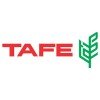
Asked in Tractors and Farm Equipment

Q. Process performance and Process performance index. which is a statical method to determine wether the process is capable for long run.
Process performance index is a statistical method to determine if a process is capable for long run.
Process performance is a measure of how well a process is performing compared to its specifications.
Process performance index (Ppk) takes into account both process centering and process spread.
A Ppk value of 1 or higher indicates that the process is capable for long run.
If Ppk is less than 1, the process may need improvement to ensure long-term capability.
Ppk can be calculated ...read more

Asked in Sonalika Tractors

Q. What kind of gears are used in tractors?
Tractors use a variety of gears depending on their purpose and design.
Common types of gears used in tractors include spur gears, bevel gears, and helical gears.
Spur gears are used for low-speed applications, while bevel gears are used for high-speed applications.
Helical gears are used for high-speed and heavy-duty applications.
Tractors may also use planetary gears for their transmission systems.
The type of gear used depends on the tractor's intended use, power output, and tra...read more

Asked in Shri Bhagwati Machines Pvt. Ltd.

Q. What is the meaning of green field projects for the team?
Team green field projects refer to new projects that are started from scratch without any prior constraints or limitations.
Team green field projects involve starting a project with a clean slate, without any existing infrastructure or limitations.
These projects allow for creativity and innovation as there are no pre-existing guidelines to follow.
Examples of team green field projects include developing a new product line, creating a new software application, or designing a new...read more
Asked in East West Automation Tech

Q. What is your understanding of knowledge wiring harnesses?
Knowledge wiring harnesses are systems used in engineering to organize and manage information related to wiring components.
Knowledge wiring harnesses are used to document and track the specifications, configurations, and connections of wiring components in a system.
They help engineers ensure that the wiring is correctly designed, installed, and maintained.
Examples of knowledge wiring harness tools include software like Mentor Graphics Capital and Siemens PLM Software.
These sy...read more

Asked in Padget Electronics

Q. What is Aspect ration and area ratio? and what was the formula ?
Aspect ratio is the ratio of the longer side of a rectangle to its shorter side, while area ratio is the ratio of the total area of a shape to the area of a reference shape.
Aspect ratio is calculated by dividing the length of the longer side by the length of the shorter side.
Area ratio is calculated by dividing the total area of a shape by the area of a reference shape.
Aspect ratio formula: Aspect Ratio = Length of Longer Side / Length of Shorter Side
Area ratio formula: Area ...read more
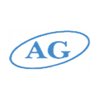
Asked in Ag Industries

Q. How many documents are in PPAP, and can you describe them in detail?
PPAP typically consists of 18 documents including items like control plans, FMEAs, and PSWs.
PPAP typically consists of 18 documents
Some key documents in PPAP include control plans, FMEAs, PSWs, and dimensional results
Each document serves a specific purpose in ensuring product quality and compliance

Asked in Sonalika Tractors

Q. What do you know about tractors?
A tractor is a heavy-duty vehicle used for farming and construction purposes.
Tractors are used for plowing, tilling, and planting in agriculture.
They are also used for hauling heavy loads and construction work.
Tractors come in different sizes and types, such as utility tractors, row-crop tractors, and compact tractors.
They are powered by diesel engines and have large rear wheels for traction.
Modern tractors often have advanced features like GPS and automated steering.

Asked in Punch Ratna Fasteners

Q. What is PPAP and elements of PPAP.Control plan,GD&T
PPAP is a process used in the automotive industry to ensure quality and consistency of parts.
PPAP stands for Production Part Approval Process
It involves a series of steps to ensure that parts meet customer requirements
Elements of PPAP include control plan, FMEA, measurement system analysis, and more
Control plan is a document that outlines how a process will be controlled to ensure quality
GD&T stands for Geometric Dimensioning and Tolerancing, which is a system used to define ...read more

Asked in V-Guard Industries

Q. What processes are used to enhance the lifespan of inserts?
Processes such as cleaning, coating, sharpening, and inspection are done to enhance the life of inserts.
Cleaning: Removes debris and contaminants to prevent damage.
Coating: Adds a protective layer to improve wear resistance.
Sharpening: Restores cutting edges for better performance.
Inspection: Ensures quality and identifies any issues early on.

Asked in Trw Sun Steering Wheels

Q. What is APQP What is PFD what do you know about stamping
APQP is a process used in manufacturing to ensure quality and consistency. PFD is a document that outlines the design of a product. Stamping is a manufacturing process used to shape metal into specific forms.
APQP stands for Advanced Product Quality Planning and is used to ensure that a product meets customer requirements and is produced efficiently.
PFD stands for Process Flow Diagram and is a document that outlines the steps involved in manufacturing a product.
Stamping is a m...read more
Asked in Applied Auto Parts

Q. What knowledge do you have about the automobile industry?
I possess a comprehensive understanding of the automobile industry, including trends, technologies, and market dynamics.
Familiar with electric vehicle (EV) advancements, such as Tesla's impact on the market.
Knowledge of automotive safety standards, including crash test ratings and regulations.
Understanding of supply chain challenges, especially post-COVID-19 disruptions.
Awareness of emerging technologies like autonomous driving and connected vehicles.
Insight into consumer pre...read more

Asked in Digitise IT

Q. What are layers in AutoCAD?
Layers in AutoCAD are used to organize and group different types of objects in a drawing.
Layers help to control the visibility and properties of objects in a drawing.
Objects can be assigned to different layers based on their type or purpose.
Layers can be turned on or off, frozen or thawed, and their properties can be modified.
Examples of layer names include 'Dimensions', 'Text', 'Hatch', 'Electrical', etc.
Asked in East West Automation Tech

Q. What is Advanced Product Quality Planning (APQP)?
APQP is a structured method for defining and establishing the steps necessary to ensure that a product satisfies customer requirements.
APQP is a quality framework used in the automotive industry to ensure that products meet customer expectations.
It involves planning and defining the necessary steps from product design to production to ensure quality.
APQP includes activities such as design and process FMEAs, control plans, and production part approval process (PPAP).

Asked in Tech Mahindra

Q. What is the total number of certificates you hold?
I hold a total of 5 certificates related to NPD engineering.
5 certificates in NPD engineering
Certifications in project management and product development
Continuous learning and skill development through certifications

Asked in Sanjeev Auto Parts Manufacturers

Q. Material used for gear and shaft and its properties
Gears are typically made of steel, while shafts can be made of steel, aluminum, or other materials depending on application.
Gears are commonly made of steel due to its strength and durability.
Shafts can be made of steel, aluminum, or other materials based on factors like load capacity, speed, and cost.
Steel gears are often heat treated for increased hardness and wear resistance.
Aluminum shafts are lightweight and corrosion-resistant, making them suitable for certain applicati...read more

Asked in Tech Mahindra

Q. What is the process followed within the company?
The company follows a structured process for New Product Development (NPD) involving market research, concept development, design, testing, and launch.
Market research to identify customer needs and preferences
Concept development to brainstorm ideas and create prototypes
Design phase to develop detailed product specifications
Testing phase to ensure product meets quality standards
Launch phase to introduce product to market and monitor performance

Asked in Shri Bhagwati Machines Pvt. Ltd.

Q. What do you mean by latent heat?
Latent heat is the heat energy absorbed or released during a phase change without a change in temperature.
Latent heat is the energy absorbed or released when a substance changes from one state to another, such as from solid to liquid or liquid to gas.
It is called 'latent' because it is hidden or concealed within the substance and does not cause a change in temperature.
Examples include the heat absorbed when ice melts into water or the heat released when water vapor condenses ...read more
Asked in HICAL NSE

Q. Integration as pr customer drawing specifications
Integration of customer drawing specifications is crucial for NPD Engineer to ensure product meets customer requirements.
Understand customer drawing specifications thoroughly
Integrate specifications into product design and development process
Communicate with customers to clarify any ambiguities or discrepancies in specifications
Ensure final product meets all customer drawing specifications
Asked in Sun-N-Shade Sunvisors

Q. What are the documents required for PPAP?
PPAP documents include PSW, PFMEA, Control Plan, MSA, and more.
PPAP documents include Part Submission Warrant (PSW)
PPAP documents include Process Failure Mode and Effects Analysis (PFMEA)
PPAP documents include Control Plan
PPAP documents include Measurement System Analysis (MSA)
PPAP documents include Dimensional Results
PPAP documents include Material Certifications
PPAP documents include Initial Process Studies
PPAP documents include Qualified Laboratory Documentation
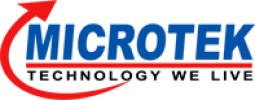
Asked in Microtek International

Q. What is the process for manufacturing a product?
The process for manufacturing a product involves designing, prototyping, testing, sourcing materials, production, quality control, and packaging.
Designing the product based on customer requirements and market research
Creating prototypes to test functionality and gather feedback
Sourcing materials and components from suppliers
Setting up production line and manufacturing the product
Implementing quality control measures to ensure product meets standards
Packaging the product for d...read more
Asked in Bharat Precision Instruments

Q. Whats is PPAP? Tell me documents used in PPAP?
PPAP stands for Production Part Approval Process. It is a standardized process in the automotive industry to ensure suppliers meet quality standards.
PPAP is a set of documents and requirements used to ensure that suppliers have met all customer engineering design record and specification requirements.
Some documents used in PPAP include: PSW (Part Submission Warrant), PFMEA (Process Failure Mode and Effects Analysis), Control Plan, Dimensional Results, Material Certifications,...read more
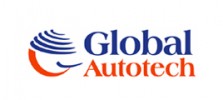
Asked in Global Autotech

Q. How do you check the flatness of an uneven surface?
Use a straight edge or surface plate to check flatness of uneven surface.
Use a straight edge or surface plate to check for any gaps or rocking on the surface
Measure the deviation from flatness using feeler gauges or dial indicators
Check for any high spots or low spots on the surface
Repeat the process in multiple directions to ensure overall flatness
Interview Questions of Similar Designations
Interview Experiences of Popular Companies


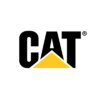





Reviews
Interviews
Salaries
Users

















